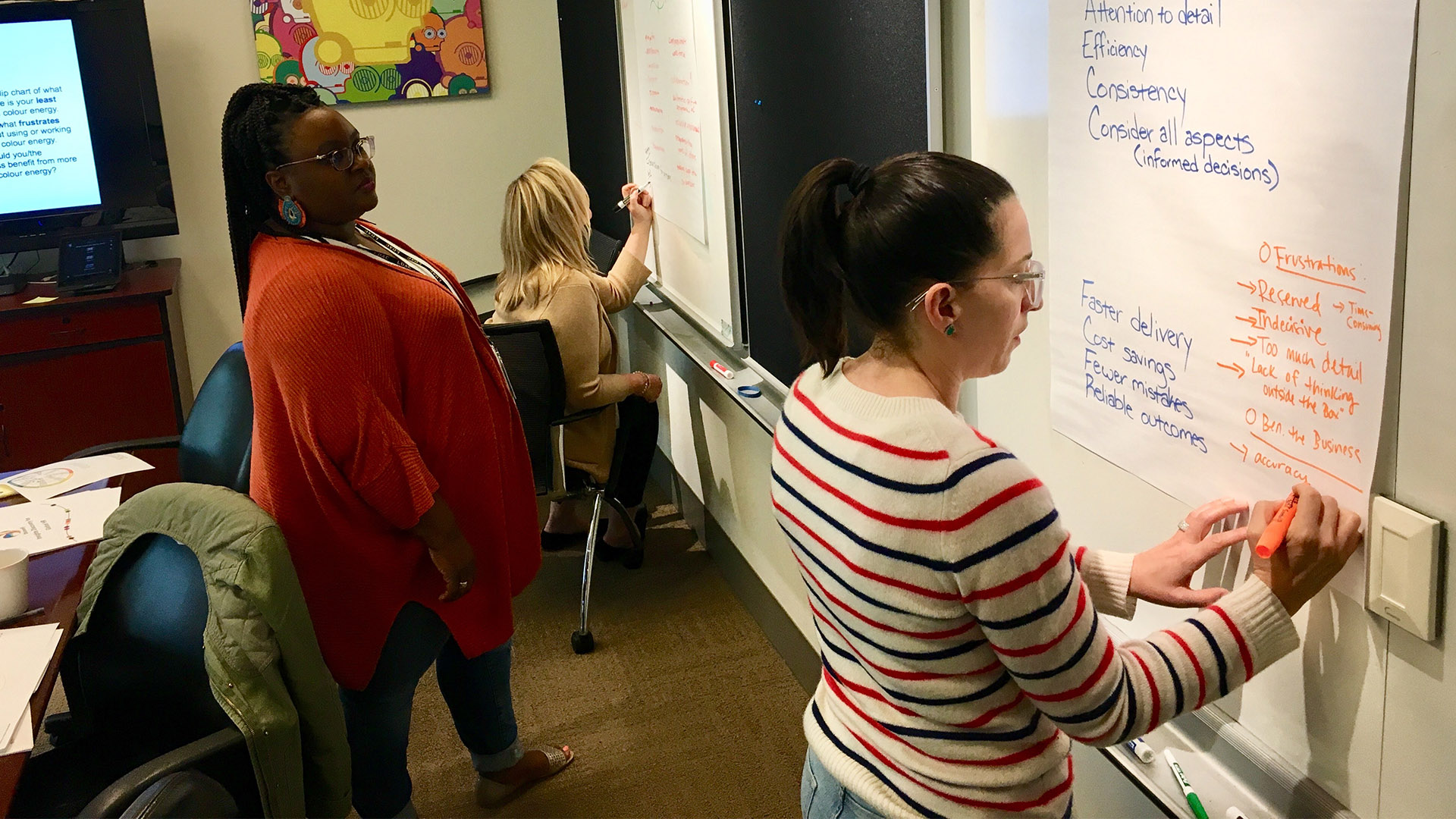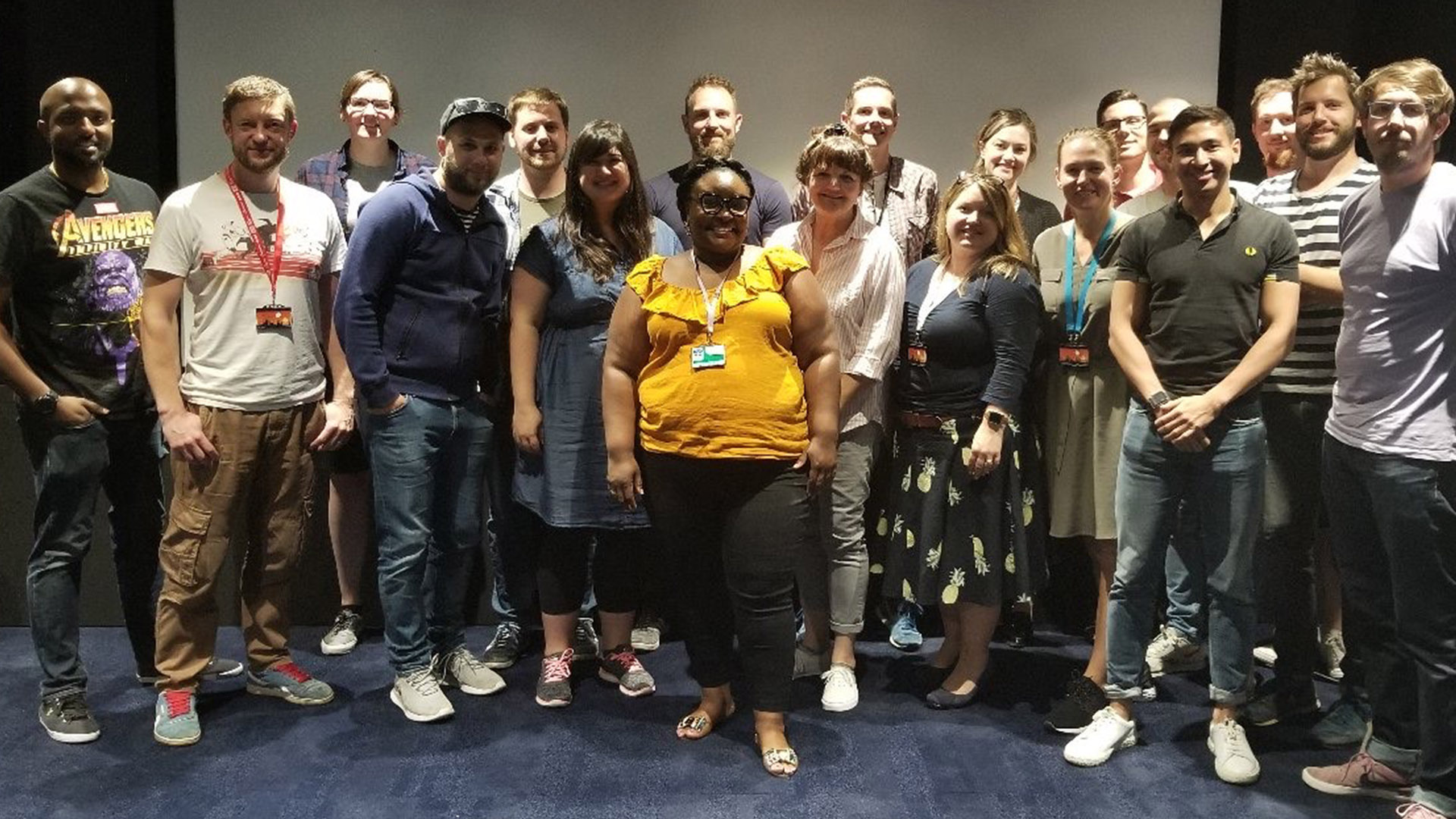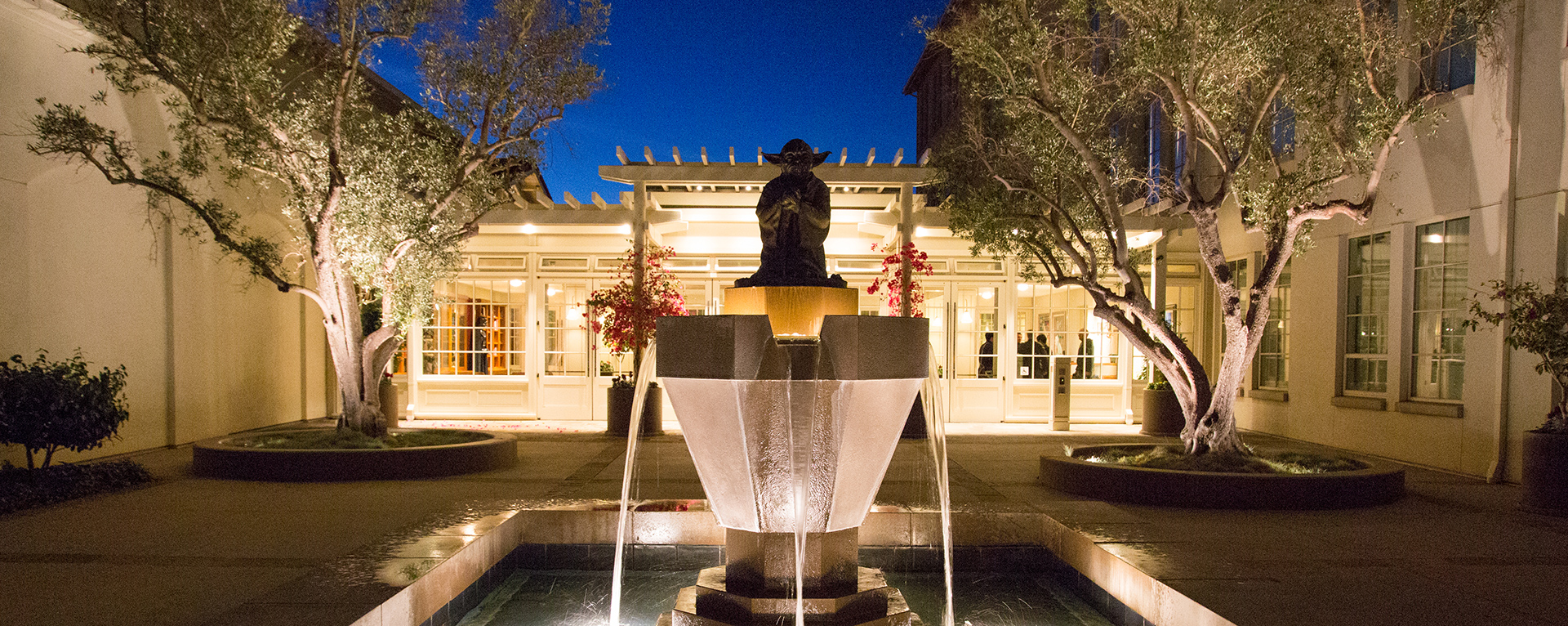Employee Spotlight: Lauren Glover
At a Place Like Lucasfilm, Everyone is a Storyteller
Can you tell us your role and describe your day-to-day responsibilities?
I am the Learning and Development Manager, and a part of the Studio Talent Group. We handle everything involving training, and I focus on people skills, leadership development, effective communication, interview training, personality assessments, and conflict resolution. I help to create and facilitate those learning experiences.
How does your role fit within your larger team?
We have a training coordinator who helps organize the logistics of the learning experiences we offer. The head of our department, Danielle O’Hare, who is Director, Talent Development, oversees all of those experiences. There are others on my team who work in more technical areas like software and related skills. I work on the people development.
Can you discuss more about the relationship between personal and technical development?
There are some overlaps. It depends on the individual’s role. There are things I work with that anyone can be a part of, like having quality conversations and meaningful dialogue. It’s helpful to work on conveying messages effectively, articulating your ideas, listening to others. Those are things that everyone can benefit from, whether a role is highly technical or not.
A lot of my trainings are focused on the leadership team, and some involve effectively leading a group of people in technical roles. I’ve had to become creative about how to provide information. The audience is very important. If my audience is full of creatives, the way I present a message is geared for them and how they can translate my offerings to their own audience. A group of finance employees might be more analytical. They want to understand data, so I make sure I have that kind of information.
Stepping back for a moment, could you discuss your educational and professional background before joining Lucasfilm?
I received my undergraduate degree at Morgan State University in Baltimore, Maryland. I then did a graduate program at Ball State University in Muncie, Indiana. Both degrees focused on organizational development and communication. I examined questions such as, how do you help organizations communicate with their employees?
I was a recruiter for two years at a small security company, but I knew that training and development was my passion. I had that itch! I needed to get back to it. So, I went into hotels and hospitality, working for Marriott at the Gaylord National Resort & Convention Center near Washington, D.C. I did front-office training with them for four years. We worked on things like guest satisfaction and hotel standards.
I later moved to California in 2014, continuing in hotels at first. I then moved to manufacturing at a company called Blue Apron. I loved it, but I had found my ceiling there. I then discovered Lucasfilm, which was a whole new field for me. But when I met the people, I felt connected to them and the organization’s ideals and values. Storytelling was an important topic. I thought, if anyone can tell a good story, it’s me! So, I feel like I’m exactly where I belong.
How did you discover training and development as a passion?
As an undergrad, I started as a Business Administration major. I told myself I was going to be a real estate agent! But I ended up taking a speech course because I’d enjoyed oration as an extra-curricular activity growing up. The professor pulled me aside and asked me what my ambitions were. She encouraged me to think about training and development. I didn’t know anything about it. I learned it was basically teaching for adults.
The more I researched, the more I thought it was something for me. I changed my track to organizational development. That same professor became my mentor. She helped me enter graduate school, where I had another mentor help me refine my skills in content development, facilitation, and lecture structure. Those two mentors helped me open my eyes and go in that direction.
So, joining Lucasfilm involved entering a new field. What has that process been like?
The audiences are very different here, particularly the creative side. It’s challenged me to think about my own style and the stories I tell and whether they’ll resonate. I’ve thought more broadly and critically about how I give information. I’d learned about production in my previous role at Blue Apron, and about being conscious of those demands. Production is definitely a word used here! But I’ve had to learn to stretch my brain in a different way to think about this audience. I feel like I’m rising to the challenge!
What was your previous experience or interaction with Lucasfilm and its releases?
I wasn’t as big of a Star Wars fan as I was an Indiana Jones fan. I love, love, love Indiana Jones! My father loved it, and that was something we connected with when I was a child. We’d go to Blockbuster and rent the VHS to watch over and over again. So, Indiana Jones was my introduction to Lucasfilm. When I got here, I was so excited about it. But I learned a lot more about the reach of Lucasfilm and Industrial Light & Magic. I hadn’t realized the companies had a hand in tons of movies I’d loved. How lucky am I?
Do you have a favorite film in the Indiana Jones series?
I love all of them, but if I had to choose, I’d pick Raiders of the Lost Ark. That was the first one I saw. I wasn’t born when it first released, but my father introduced me to it when I was young. We’d watch it around Christmas time each year. It was our holiday movie. Other people watched Home Alone, but we watched Raiders of the Lost Ark! It opened up my love for movies.
Returning to your work, do you have a favorite part of your job here?
The facilitation of learning experiences is where I find the most energy and passion. I light up in a room, and get jazzed from having a group of people to share ideas with, get perspectives from, and find solutions together. I love being able to tap into the knowledge in the room and have good dialogue. We can talk about people’s stories and share best practices. Even if someone walks into the room thinking they knew everything, someone else in the room can tell them something they don’t know. I love those “a-ha” moments and helping people have them. My manager, Danielle sometimes says that my classes are like therapy, and I love that! People can share freely and talk about their issues and have help to find solutions.
Thinking about leadership, are they any qualities or strengths in leaders that you think are worth emphasizing?
A good leader is empathetic; a good leader is transparent. That combination of relating to people, being open to them, and communicating an idea well, which means you have to understand it yourself, is one I’ve seen be very effective. But there are lots of ways. One quote I like comes from a man named Zig Ziglar, who said, “Good leadership is like a good omelet. It starts with an egg.” All of this amazing stuff goes into an omelet, but it starts with the first egg, that person who takes something small and makes it into something bigger.
Beyond the general qualifications, are there any skills or attributes that you think are important to your specific role?
I think a good facilitator is one who reads a room and reads people very well. It’s one thing to articulate yourself or entertain people, but to be able to see what people need even though they’re not saying it out loud is a sign of a good facilitator.
You often hear about the difference between introverts and extroverts. A lot of people think that I’m an extrovert because when I come into a room, I am a performer, but I actually have an introverted preference. I’ve found that being a source of knowledge and guidance in the room is a passion of mine, but my inclination is to be alone in silence, thinking. A lot of people have to find out how to do their job effectively even though it’s not their natural inclination. That’s something I’ve had to master over the years.
Have you had any favorite experiences so far?
Visiting the ILM London campus was very special. Everyone there was so warm, welcoming, and receptive. That’s one of my favorite memories.
What advice would you give to those aspiring to join Lucasfilm?
I would tell them, “perfect your story.” Storytelling is at the core of who we are and what we do at Lucasfilm, and a compelling story will set you apart from other applicants. Your story can be the ups and downs of your career journey, your greatest accomplishments, or even the steps you are taking to create the future you desire. Whatever it is, don’t be afraid to share your most authentic self. Uniqueness and authenticity are valued here, so don’t be afraid to share the most genuine version of you.


Lucas O. Seastrom is a writer and historian at Lucasfilm.

